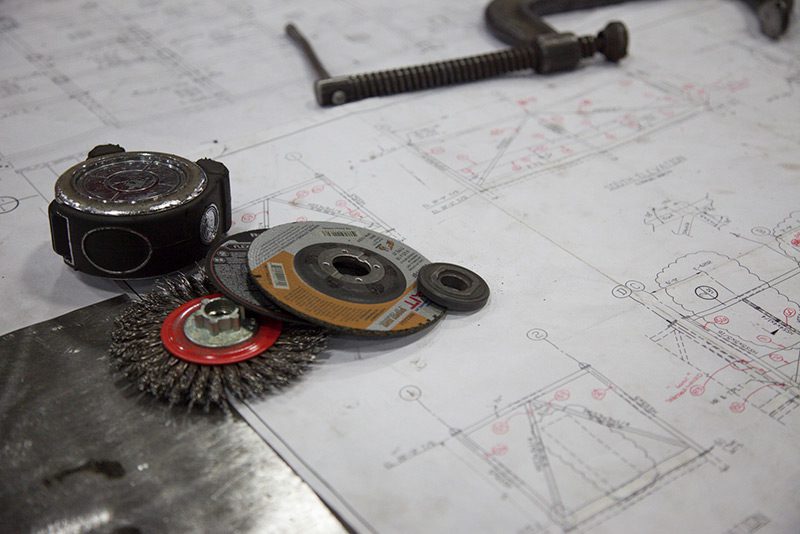When embarking on a project that can involve many steps – from design and engineering; to cutting, forming, welding, and finishing; and finally onto assembling and installation – it’s important for the various teams involved in the project to work together up front to identify and explore potential project weaknesses or challenges before they occur. At GSM, this is known as the Project Kick-Off Meeting, which is the first step of our Project Management Process.
Project Kick-Off Meeting
Prior to most of the projects moving through our shop or being installed out in the field, we go through a detailed review of each project. At this meeting, all of the details for the project are discussed. This includes what we know, what we don’t know, and in what areas clarification is needed. Our goal in this meeting is to discuss all available project information and to answer all questions prior to beginning any work as a way to help ensure the project will run as smoothly as possible.
Every department that touches a specific project is involved in the kick-off meeting. This could include operations (field and/or shop personnel), schedulers, sales, project managers, estimators, designers, and others, depending on the project.
Of course, not every challenge or issue gets caught proactively in the Kick-Off Meeting. And further, not every scenario plays out exactly as anticipated. The fact of the matter is, we learn a lot along the way in nearly every project we touch. We capture this information and knowledge in our After-Action Review Meetings, which then gets documented, filed, and used as reference to help with future projects for the specific client or in similar jobs for other clients.
After-Action Review (AAR) Meeting
Upon completion of most of our projects we conduct an AAR Meeting. The goal of this meeting is to discuss what went well and what didn’t. What should we keep doing and what should we stop doing? How could we have done this better? What did we not discuss – or what information did we not have – at the kick-off meeting that, in hindsight, would have been valuable to know?
All of this information is documented, just like in the kick-off meetings. These notes are then reviewed at the next Project Kick-Off Meeting for that specific client or for a similar project type the next go around.
While we can’t fully safeguard against surprises or challenges that come up, this full circle project management process helps to keep project challenges and issues to a minimum. And, as we do more projects, hold more of these meetings, and learn and document more information for the next project, it results in more efficient work, faster delivery, and better end results for our customers.

